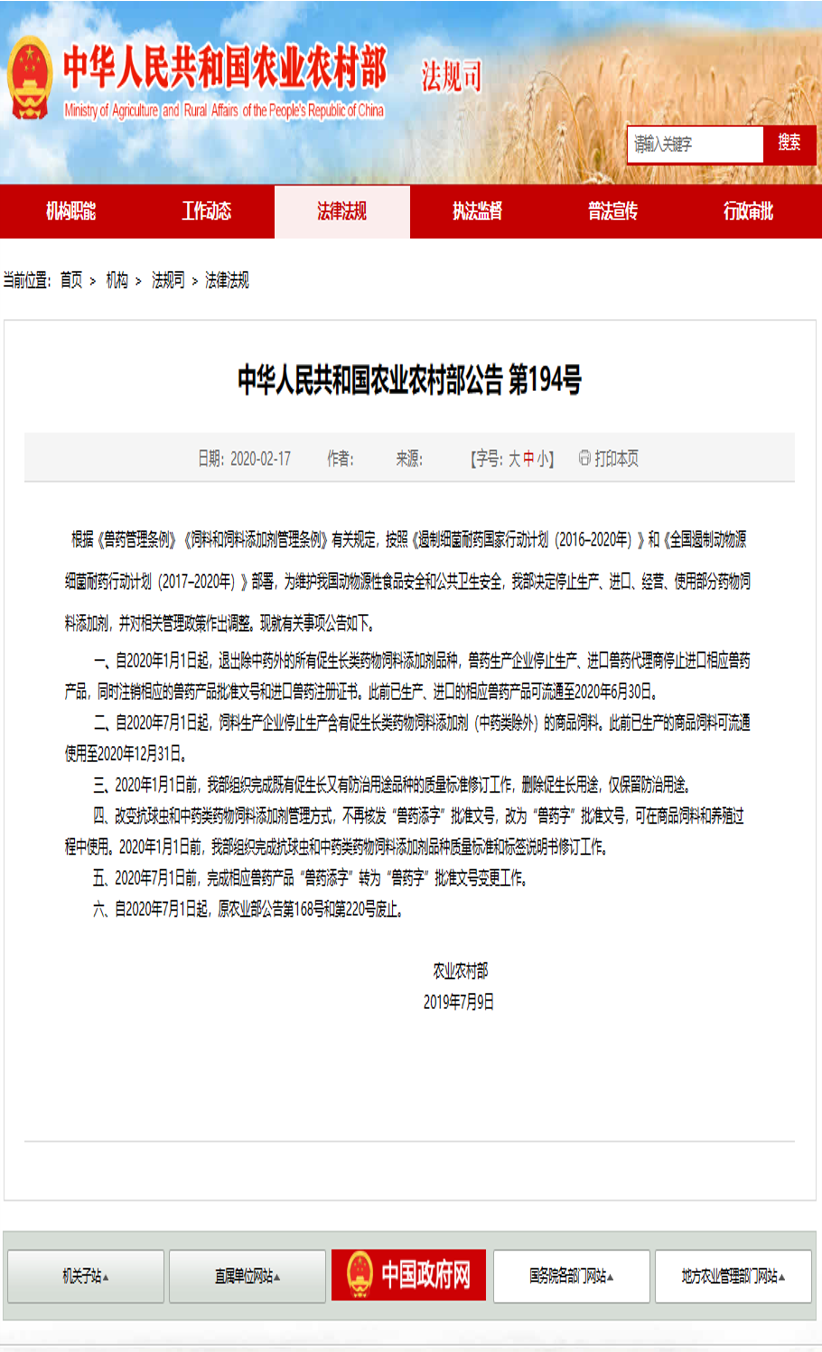
 Ministry of Agriculture and Rural Affairs: Antibiotics to be Completely Banned in Feed from 2020 According to the relevant provisions of Regulations on administration of Veterinary Drugs and Regulations on the Administration of Feeds and Feed Additives, in accordance with the deployment of the National Action Plan to Contain Antimicrobial Resistance (2016-2020) and National Action Plan to Contain Antimicrobial Resistance in Animal Sources (2017-2020), the Ministry of Agriculture and Rural Affairs has decided to cease the production, import, operation, and use of certain drug feed additives to safeguard the safety of animal-sourced food and public health in the People's Republic of China. Starting from July 1, 2020, feed production companies must stop producing commercial feed containing growth-promoting feed additives (except for traditional Chinese medicine). Commercial feed produced prior to this date can still be circulated and used until December 31, 2020. Feed is the material foundation for raising animals. Since the late 1940s, antibiotics have been used as feed additives for nearly 80 years. In the "antibiotic ban" era, what can replace antibiotics? As everyone knows, enzymes and probiotics play main roles in bacterial inhibition and promoting animal growth directly or indirectly similar to antibiotics. Probiotics such as Bacillus Subtilis can keep the balance of animal intestinal flora, while enzyme can help animals digest nutrients in feed, raise feed conversion ratio of livestock and poultry feed, and reduce emissions of nitrogen and phosphorus from livestock and poultry farming. The appropriate combination of feed additives can alleviate the problem of food shortages to a certain extent, and also solve problems such as antibiotic residues and environmental pollution.
|